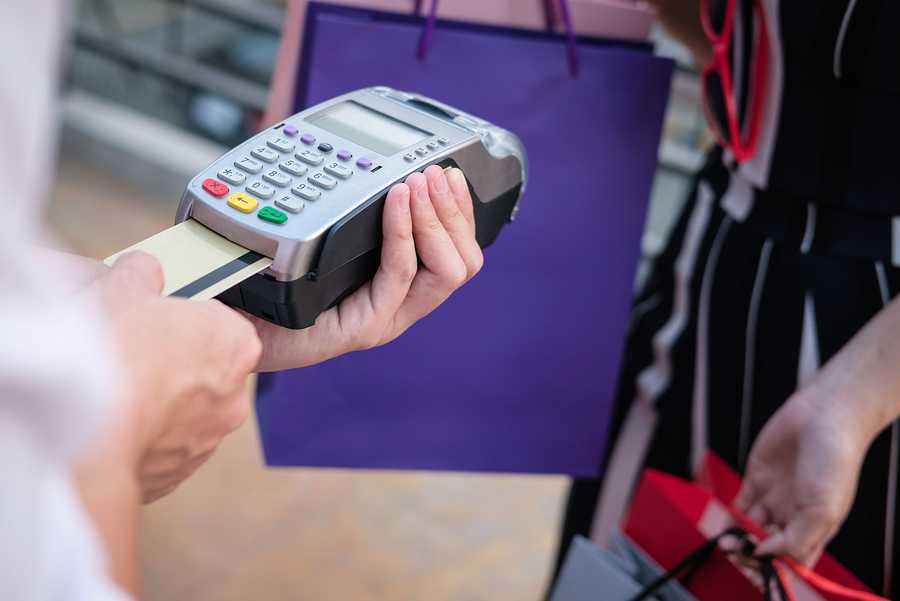Looking at the growing number of identity thefts, the U.S. government passed the Fair and Accurate Credit Card Transactions Act (FACTA) to keep debit and credit card information private and protect consumers from identity theft. The act was passed in 2003 but retailers had three more years to become compliant. File a debit card receipt lawsuit with Shamis & Gentile, P.A. if you believe a merchant printed more than 5 digits or your debit or credit card on your receipt.
How FACTA works?
Whenever you purchase goods from a store and use your cards to a pay the bills, you are handed over a receipt as a proof of the transaction.
That receipt includes information about your account and the goods you purchased. FACTA truncates the information allowed to be printed on the receipt.
What information can be legally displayed on the receipt?
According to the Fair and Accurate Credit Card Transactions Act, credit and debit card receipts are only allowed to print the last five digits of the persons’ account numbers. Also, the expiration dates shall not be printed on the receipts.
If any other digits except for the last five digits are printed, even though only five are printed, it would be considered an act of violating the FACTA and the retailer might be liable for a debit card receipt lawsuit.
Along with the last five digits of the account number, retailers are allowed to print general information like names and the quantity of the goods purchased, the date and time of the purchase, approval codes, taxes if any, name of the store and the address and in some cases the name of the cashier is also printed.
In place of the missing account numbers, other symbols are used to fill in the empty space.
What if the receipt I receive has the expiration date or any other digits of my account number?
If you have received a receipt that has more than the last five digits of your account number or has other digits rather than the last five digits, you can file for a debit card receipt lawsuit today.
Even if your receipt mentions the expiration date of your credit or debit card, it would be considered as an act of violating the FACTA. Contact a class action attorney to know more about the latter.
According to FACTA, a consumer who obtains a receipt from retailer with the information that the law does not permit to print, can approach the court of law and file a debit card receipt lawsuit against the retailer. Per violation, the consumer receives $100-$1000 as compensation. Also, if an individual becomes a lead plaintiff in a debit card receipt lawsuit, he/she might receive an incentive up to $20,000 as an award.
This award is an encouragement for people to come up and talk about what they witness and experience as it helps in increasing awareness among the people.
Why do people need to be aware of FACTA violation?
Credit and debit card receipts are safe and secure only when they are printed under the guidelines of FACTA. If valuable information like account numbers and expiration dates are printed on the receipts, the account holder is exposed to the threat of identity theft.
How can debit card receipts help in identity theft?
Identity theft is when another person impersonates you and generally this is done through cash accounts and social media. The information on your debit card receipt can be used for phishing.
Phishing is when a fraudster calls you and mentions to you a few digits of your account number (generally the ones printed on the receipt) and tells you that there is an issue with your account. It can be some money missing or they might tell you that your account is about to be blocked. Further, they ask you for your account number and sometimes other valuable passwords and then identity thefts take place in which you end up losing a lot of money and digital data as well.
If you move to a different city, make sure to inform your bank and have your address changed. If the latter is neglected, the bank might detect a suspicious activity when you try to withdraw money from a different region and there are chances that your account would be blocked for safety reasons.
Debit Card Receipt Lawsuit
Keeping your information private is very essential as the number of identity theft cases are increasing every year. You must be alert that the receipts you receive abide by FACTA and if not, get in touch with a class action attorney at Shamis and Gentile P.A. and file a credit or debit card receipt lawsuit against the retailer for irresponsibly handling your information.










